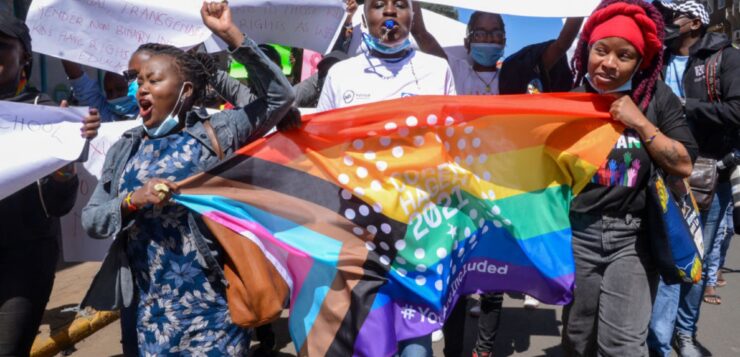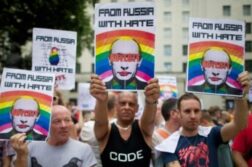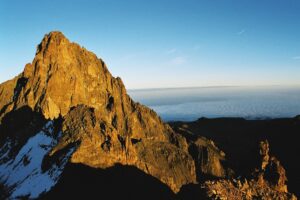
The onslaught of political attacks on the LGBTQ community in Kenya is taking a new turn, after a group of traditionalists climbed Mount Kenya, removed the LGBTQ flag, set it on fire at the foot of the Mountain, and threw the ashes to the river.
Mr Wachira Kiago, Chairman of the Kikuyu Council of Elders, publicly supported the group, claiming the removal was to protect Mt. Kenya, which the Kikuyu consider a sacred and consecrated place. The Kikuyu are a Bantu group from Central Kenya. “Mount Kenya is a holy place where our God resides; we respect the place and that is why we usually conduct our prayers facing it, therefore anything that represents such weird western ideas like LGBTQ is not tolerated there,” Kiago said.
In Kikuyu society, an LGBTQ community among the elderly is often unheard of, as most denounce LGBTQ rights because of their religious belief in the creation myth, that man and woman were meant to procreate, and any other arrangement is unholy. RT, a Kikuyu, Christian mother of two teenagers, believes that LGBTQ should not be tolerated if people want to see the future generation. “They are a threat to the future of our children; if men marry each other there will be no children to take forward a generation. This is a bad idea, which my bible terms as a sin, therefore should not be allowed to continue. I support the removal of that flag from the Mt. Kenya because such a flag denoting such ideas has no space there,” she said.
While the majority of the elderly in Kikuyu society oppose the LGBTQ community, the young people seem more tolerant. JA, a youth individual in Kenya, who believes that the flag shouldn’t have been removed, and that society should learn to coexist with LGBTQ people says: “The Mountain belongs to all of us. It is a national landmark, and natural resource that belongs to the whole country. No one should monopolize it.”
The LGBTQ flag was hoisted atop Mount Kenya by a group of human rights activists under the Defenders Coalition of Kenya in 2019, in a bid to raise funds for much-needed assistance for Kenyan human rights advocates, including LGBTIQ individuals.
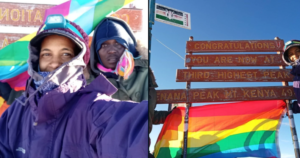
Juelz Nimo, a member of a team that climbed Mt Kenya in 2019 to raise awareness about the safety of LGBTQ persons and other human rights campaigners, has sworn to rehoist the flag again. Nimo says that hoisting the flag again on the mountain’s third highest summit would be a show of resistance in the face of escalating anti-gay sentiment in Kenya.
Recently, two bills incriminating LGBTQ people and defunding LGBTQ-based projects and initiatives were tabled in Kenya’s Parliament, a move that has put the community in danger and curtailed its freedom to associate freely as stipulated in the constitution because of fear of attacks from the public.
The Kenyan Supreme Court recently chastised the government for failing to register an LGBTQ organization, claiming that the move violates the rights of the LGBTQ community. Despite the fact that same-sex unions are still illegal in Kenya, the court determined that everyone has the freedom to associate.
As a result of a decade-long court battle, the court ruled this year in a majority decision that the non-governmental coordination board was discriminatory, and violated the community’s constitutional right to association by refusing to register any of six names proposed by community representatives, including the National Gay and Lesbian Human Rights Commission and the Gay and Lesbian Human Rights Council.
According to The Gay And Lesbian Coalition Of Kenya (GALCK), 53% of LGBTQ people are physically abused, despite Kenya’s progressive Constitution. These discriminatory laws foster a false belief in society that LGBTQ people are criminals, perpetuating human rights violations and other acts of violence. Just 29% of LGBTQ people in Kenya report assaults to authorities, since they are frequently victimized if they disclose crimes against them. According to GALCK, more than half of Kenya’s LGBTQ population have been molested.
Despite the occasional prejudice or persecution faced by LGBTQ people, Kenyan society is gradually coming to terms with the existence of the group. It has become clear to society that the community is here to stay and must learn to survive, as long as they don’t violate or undercut anyone’s right to exist, as a result of the proactive role that human rights organizations have played in defending their rights. In order to have a free, equal society for everyone, regardless of their sexual orientation, efforts to remove Kenya’s anti-homosexual legislation from the British colonial era still need to be successful.
**Note: Some names have been changed to protect the identity of those who wished to comment.
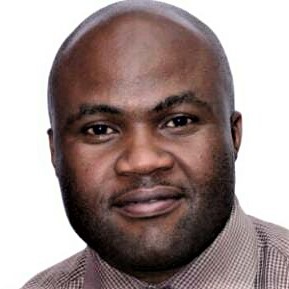 Daniel Kipchumba is a Kenya-based journalist specializing in culture, human rights, environment and climate change stories. His work has appeared in various publications like Zenger News, Khuluma Africa, News Week, Talk Africa and County News Digital.
Daniel Kipchumba is a Kenya-based journalist specializing in culture, human rights, environment and climate change stories. His work has appeared in various publications like Zenger News, Khuluma Africa, News Week, Talk Africa and County News Digital.

